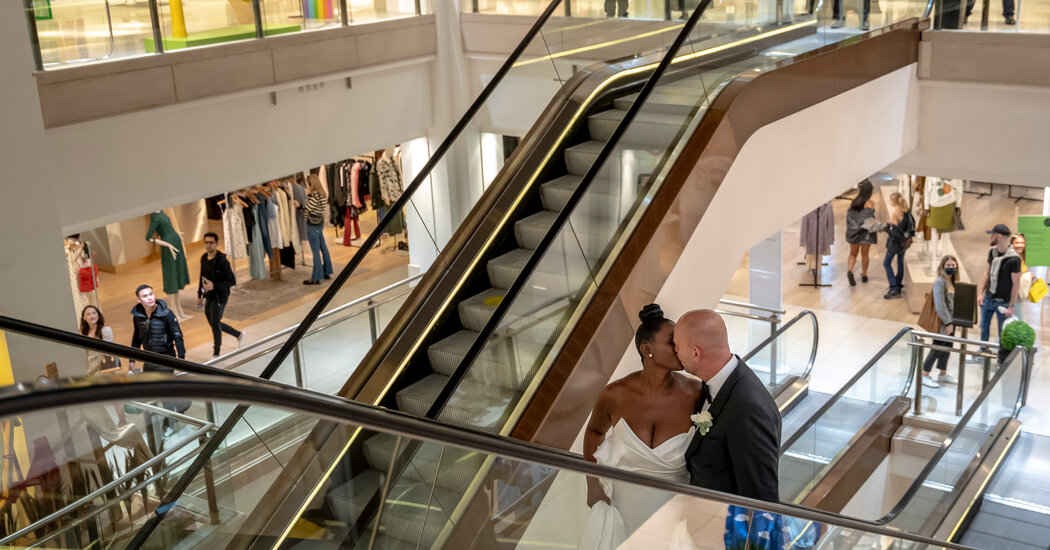
“For some time now, it’s used unexpected or creative brand activations and collaborations and cultural programming not just to bring people into the store, like a sort of immersive magazine, but also to establish its full authority in understanding cultural and consumer trends,” she said.
The department store has also benefited from being a small chain, Ms. Green added. It has just three other stores in Birmingham and Manchester, which allows for more creativity.
Among the latest examples: the Oxford Street store has an area dedicated to secondhand items, and another offering clothes for rent, both reflecting the company’s sustainability campaign.
“The levers of what makes you buy something are changing and increasingly it’s being led by service and experience or being part of a community,” Ms. Green said.
Still, the pandemic and other changes roiling the industry have taken a toll. In July 2020, the privately held company cut 450 employees, about 14 percent of its work force. Since the death in April of Galen Weston, the Canadian billionaire who bought Selfridges in 2003, the chain has reportedly been put up for sale with a £4 billion price tag for the British and Irish stores in the group.
It has also undoubtedly been hurt by the loss of international tourism, which has made only a tepid recovery this year; before the pandemic, international visitors made up 40 percent of Selfridge’s shoppers. Domestically, Selfridges faces a challenge because London’s Oxford Street has become less of a destination, with foot traffic still down by more than a third, and one out of five shops permanently closed, the local authority said.
Even if the past year and a half has been painful for many retailers, the luxury market is expected to recover by the end of 2022 or early 2023, according to a report by Bain & Company. At Selfridges, so-called social spaces, used for restaurants and experiences are often less profitable than a luxury concession, according to a report by The Business of Fashion. But these features, including a garden center and live music from buskers, have been critical to the chain’s post-lockdown identity. The London store has an “experiences concierge,” which will be expanded to the regional stores later this year. Instead of gift vouchers for products, people can now gift experiences, including skateboarding lessons and cinema trips.






